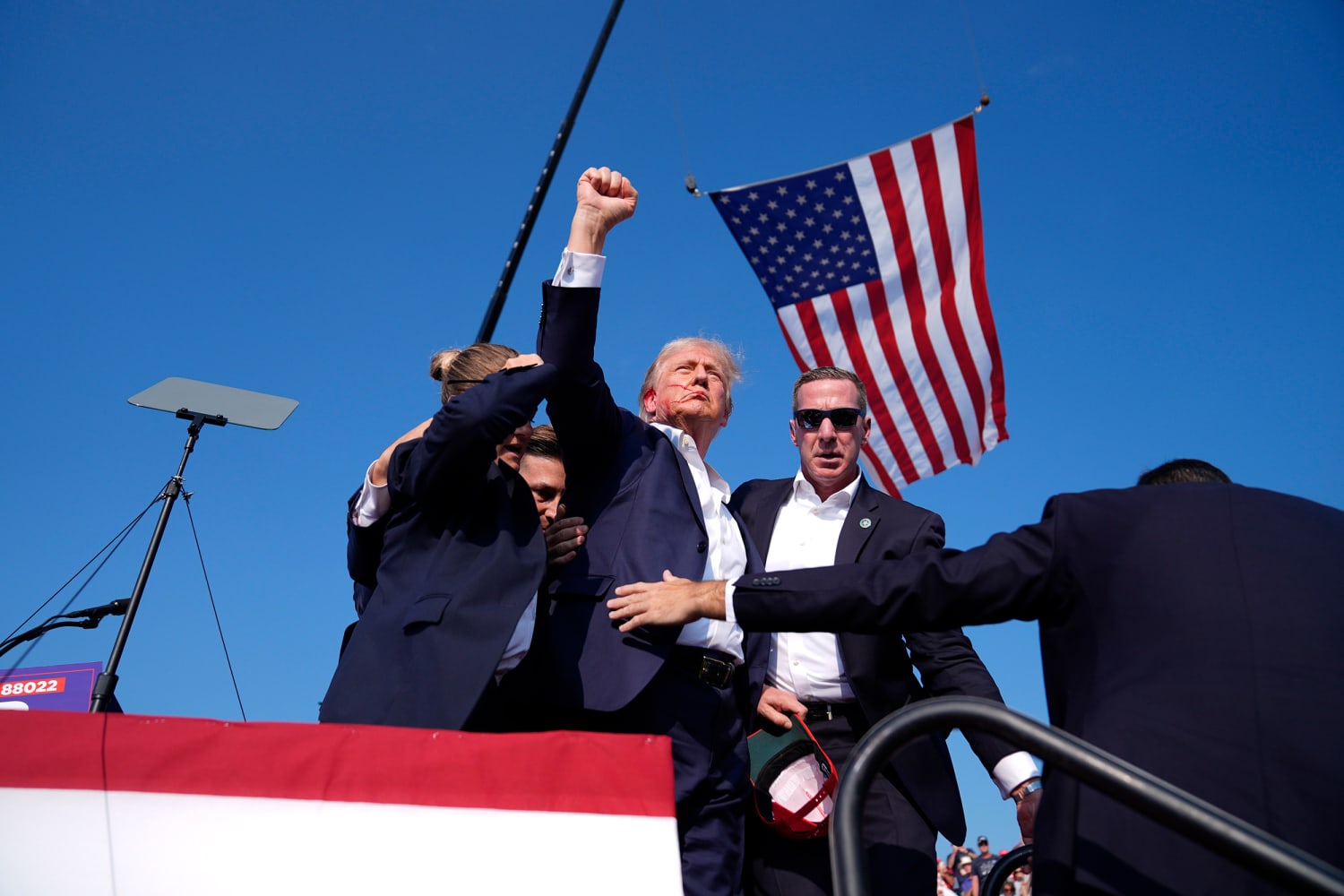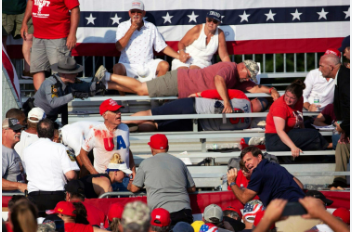Experts have been issuing warnings over the growing acceptance of the threat of violence.
Concerns regarding the increasing frequency of violent threats and an expanding list of violent attacks on politicians were jolted on Saturday when a shooter attempted to murder former President Donald Trump, leaving at least one person dead.
Concerns about the already tense election campaign turning violent after the shooting quickly surfaced.
Ian Bremmer, a political scientist and president of the Eurasia Group, said in a video that was uploaded online shortly after the shooting, “This is the worst sort of event that can happen in that environment in a country where a great many Americans do not believe that their democracy is healthy or particularly functional, and where a large majority of Americans believe that the domestic political opposition is out to destroy that democracy.”

“Deeply worried that it presages much more political violence and social instability to come,” Bremmer continued.
Director of the Chicago Project on Security and Threats and University of Chicago professor Robert Pape stated in an email that 10% of American adults, of whom 33% own firearms, concur that “use of force is justified to prevent Donald Trump from becoming president,” according to a national survey he assisted in conducting in June.
“Threats of retaliation against President Biden are another reason for concern. According to our survey, 7% of American adults (18 million), half of whom are gun owners, favor using force to put Trump back in the White House “Pape said.
“Political leaders from both parties and at all levels of government — the President, Senate and House leadership, governors, and mayors must immediately condemn political violence from whichever side of politics it arises,” he stated.
In recent years, threats and violent acts have become more commonplace in the American political arena, and political scientists and experts on extremism have cautioned about this relationship.
Also Read : Journaling the war: One Gaza student’s coping mechanisms
These kinds of threats, particularly those aimed at municipal leaders, have become more common, according to numerous polls and studies. According to a January report by the Brennan Center for Justice at New York University Law School, threats have not just been directed towards well-known national politicians; 43% of state lawmakers and 18% of municipal officeholders reported receiving threats. Federal charges pertaining to threatening public figures have increased significantly in recent years, and this trend appears to be continuing, according to the Combating Terrorism Center at the U.S. Military Academy in West Point, New York.
According to the West Point analysis, “a preliminary review of cases from 2023 and 2024 shows that the number of federal prosecutions is on pace to hit new record highs.”
In an email, Erik Nisbet, a Northwestern University professor of policy analysis and communication who has researched political violence, stated that there is an increase in violent threats made against politicians at all levels of government.
Also Read : The ‘connected’ automobile from Xiaomi, a manufacturer of smartphones, is China’s newest electric vehicle.
“Targeting elected officials at all levels and functions of government, including federal, state, and local, there has been a huge upsurge in political threats since 2016,” the man stated in an email.
Representative Steve Scalise of Louisiana was shot during a congressional softball game practice in 2017. At the time, Scalise was the third-ranking Republican in the House. A group of guys in Michigan plotted in 2020 to abduct Governor Gretchen Whitmer, while in 2022, a suspect brandishing a hammer attacked the husband of Nancy Pelosi at their San Francisco residence.

Nisbet cautioned that the use of violent threats in American politics was normalizing, pointing out that a nationwide Northwestern survey revealed that both political parties were starting to support violence.
“Our own national survey conducted by the Northwestern University Center for Communication & Public Policy shortly after the 2022 midterm election revealed that equal numbers of Democrats and Republicans believed threatening the other party’s political leaders was justified at least in some cases and equal numbers within each party each reported political violence was justified to advance their political goals,” he wrote in his email.
Political scientists have cautioned that the acceptance of violence has only increased due to public disenchantment with and mistrust of elected officials and the government at large.
The Institute for Strategic Dialogue is a nonprofit organization that investigates extremism. Katherine Keneally, director of threat analysis, claimed that many threats come from people who are motivated by inaccurate or misleading information.
She stated via email, “Unfortunately, we are witnessing a worrying increase in threats to officials based on false and/or misleading narratives, as well as disagreements on policy or beliefs.” “We are witnessing threats against officials from people who don’t seem to be associated with any one extremist group, but are instead motivated by conspiracy theories, misinformation, and divergent political ideas, even if many details of this horrifying incident and the assailant remain unclear. Once more, not much is known, but political violence ought to be denounced in all its manifestations.”
SOURCE : NBC NEWS





